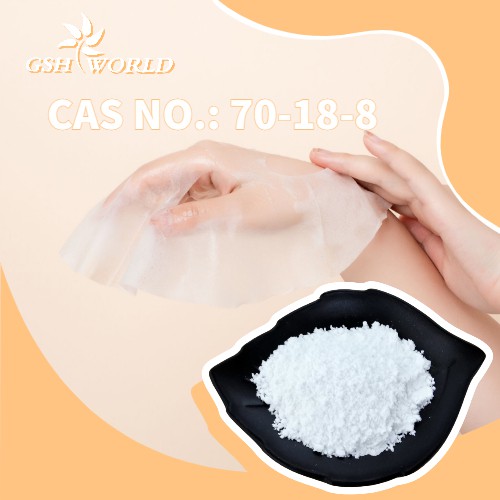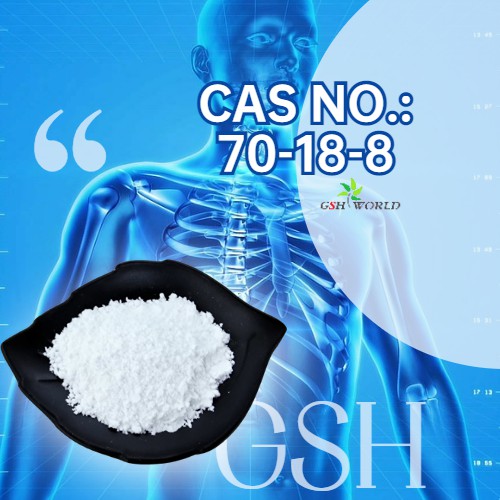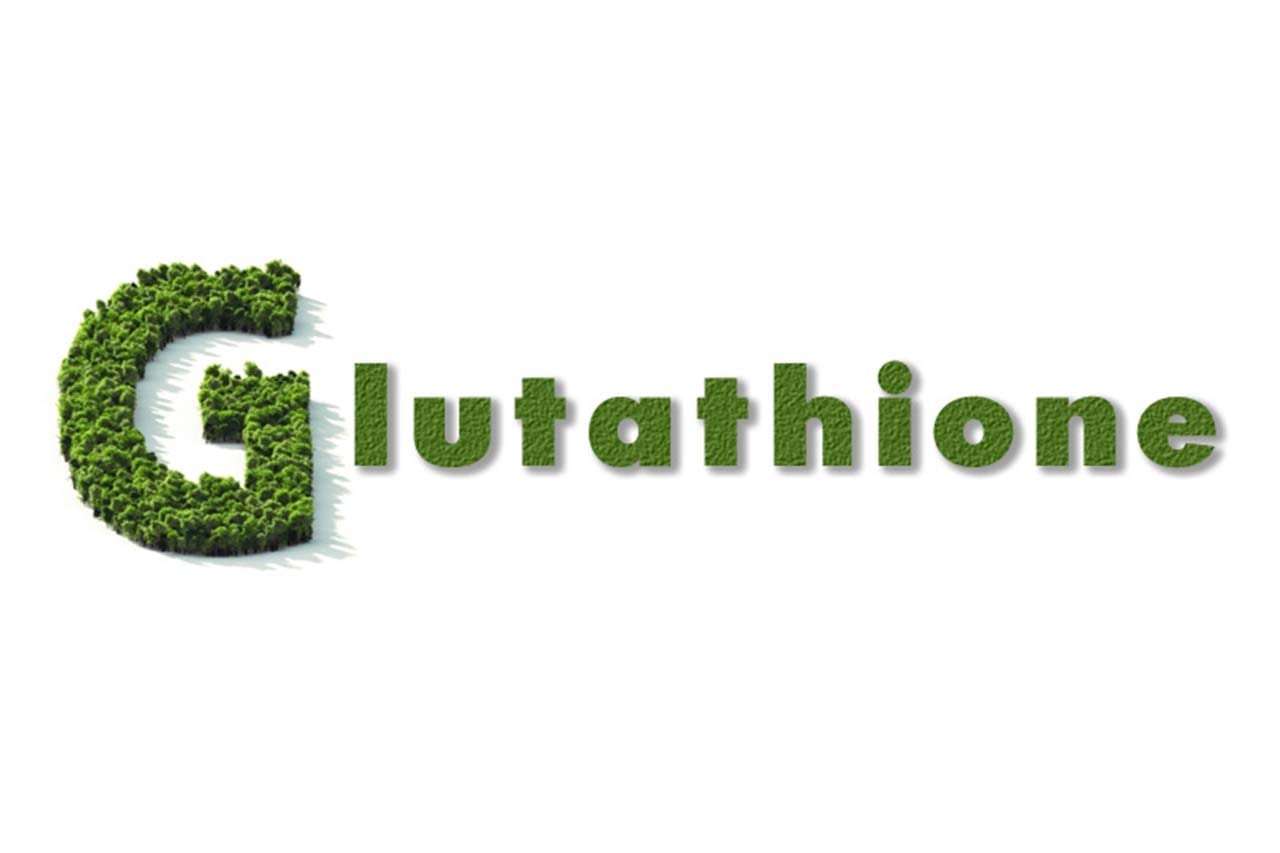Glutathione is undoubtedly a star molecule in the discussion of important metabolic processes and antioxidant mechanisms in living organisms.
This tripeptide composed of glutamic acid, cysteine and glycine is not only unique in structure, but also plays multiple important roles in function.
In this paper, glutathione’s various effects and functions will be discussed in depth. In particular, its remarkable effects in antioxidant and detoxification, as well as its wide application in clinical practice.
Basic structure and properties of glutathione
Glutathione is a tripeptide compound composed of three amino acid residues, specifically L-γ-glutamyl-l-cysteylglyceric acid.
Its unique structure contains a lively sulfyl group (-SH), which makes it have strong reducing ability in living organisms.
Reduced glutathione (GSH) is its main active form. Oxidized glutathione (GSSG) can be reduced to GSH by reductase in vivo.
The main functions and effects of glutathione

1. antioxidation
As an important antioxidant in the cell, glutathione can remove harmful substances such as free radicals and peroxides in the body, thereby protecting the integrity of the cell membrane and the function of biological macromolecules.
Through the combination of its own sulfhydryl group and free radicals, GSH can be converted into substances that are easy to metabolize and accelerate the excretion of free radicals.
This property makes glutathione play an important role in delaying aging, preventing tumors and atherosclerosis.
2. detoxification
Glutathione also performs well in detoxification, it can be combined with toxins or drugs in the body to form non-toxic or low-toxic substances, and it is excreted through the action of enzymes, in the liver, GSH can be combined with heavy metal ions, carcinogens, etc., reduce their toxicity and promote their excretion, glutathione can also alleviate the toxic reaction in anti-cancer treatment, Improve patient tolerance.
3. Hepatoprotective effect
Glutathione has an important protective effect in the liver.
It can improve the symptoms and signs of liver diseases such as viral hepatitis and alcoholic liver disease, promote the recovery of liver function, and help maintain the normal metabolism and detoxification function of the liver by activating a variety of enzyme activities.
GSH can also promote the metabolism of cholic acid. Helps the digestive tract absorb nutrients such as fat and fat-soluble vitamins.
4. immunoenhancement
Glutathione can improve the body’s immunity, maintain health and anti-aging, it can enhance the body’s resistance to adverse environmental effects, improve biological resistance to adverse environmental effects, by removing harmful substances such as free radicals and peroxides, glutathione helps protect the normal function of the immune system and delay the aging process.

Clinical application of glutathione
1. Liver disease treatment
As an adjunctive drug for liver diseases, glutathione is widely used in the treatment of viral hepatitis, alcoholic liver disease, etc. It can reduce the level of aminotransferase, improve liver function indicators and promote liver repair and regeneration.
GSH can also prevent and treat complications such as radiation damage, leukopenia and radiation-induced bone marrow tissue inflammation.
2. Detoxification application
In terms of detoxification, glutathione is used for heavy metal poisoning, organic solvent poisoning and other rescue, it can be combined with toxins or drugs in the body to form non-toxic or low-toxic substances and promote their excretion, GSH can also alleviate toxic reactions in anti-cancer treatment such as nausea, vomiting and other symptoms to improve the quality of life of patients.
3. Other clinical applications
In addition to the above main applications, glutathione is also widely used in the field of ophthalmology, it can be used for the treatment of early Alzheimer cataract and the auxiliary treatment of eye diseases such as corneal ulcer and keratitis, by inhibiting the instability of the crystal protein mercaptoyl and preventing the development of cataracts and retinal diseases, GSH plays an important role in protecting vision and promoting eye health.


